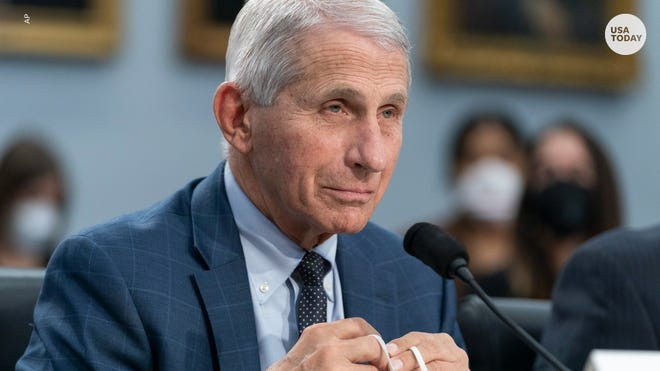The U.S. Food and Drug Administration (FDA) on Thursday approved Bristol Myers Squibb’s (BMY) highly anticipated schizophrenia drug, Cobenfy. It’s the first novel treatment for the debilitating mental disorder in over seven decades.
Since the 1950s, all schizophrenia treatments have focused on targeting dopamine receptors. However, this approach has been linked to side effects such as sedation, weight gain, and motor impairment.
Bristol Myers Squibb’s new drug, Cobenfy, is made up of two components. The first is xanomeline, a drug that activates muscarinic receptors in the brain to lower dopamine activity without triggering the typical side effects of antipsychotics. The second component is trospium, which helps minimize gastrointestinal side effects associated with xanomeline, such as nausea, vomiting, diarrhea.
“Schizophrenia is a leading cause of disability worldwide,” said Tiffany Farchione, the director of the Division of Psychiatry in the FDA’s drug center, in a press release. “This drug takes the first new approach to schizophrenia treatment in decades. This approval offers a new alternative to the antipsychotic medications people with schizophrenia have previously been prescribed.”
The FDA approved Cobenfy following two phase 3 trials. Over five weeks, patients taking Cobenfy twice daily saw about a 21-point drop in their Positive and Negative Syndrome Scale (PANSS) score — a scale used to assess symptom severity in individuals with schizophrenia and other psychotic disorders — compared to a 12-point reduction in the placebo group.
The FDA warned on Thursday that the drug shouldn’t be given to patients with liver impairment due to the risk of liver damage. Other possible side effects include urinary retention, rapid heart rate, reduced digestion, and facial swelling. The most common side effects were nausea, indigestion, constipation, vomiting, high blood pressure, stomach pain, diarrhea, fast heartbeat, dizziness, and acid reflux.
About 1% of Americans have this illness and globally it is one of the 15 leading causes of disability, according to the FDA. Individuals with schizophrenia are at greater risk of dying at a younger age, and nearly 5% die by suicide.
The U.S. launched a nationwide Suicide and Crisis Lifeline in 2022. Those in crisis can call or text 988, or reach the Crisis Text Line by texting TALK to 741741.
Cobenfy is expected to launch in late October with a list price of about $22,500 a year.
Analysts at William Blair project that Cobenfy could achieve peak U.S. sales of approximately $2 billion by 2030 for the treatment of schizophrenia alone. However, if ongoing phase 3 trials for additional indications, including Alzheimer’s-related psychosis and adjunctive schizophrenia, produce positive results, annual sales could reach between $3 billion and $5 billion.
Bristol Myers Squibb stock is up over 2%, as of Friday morning.
Changing the Way Schizophrenia Is Treated
Cobenfy represents a significant shift in the treatment of schizophrenia, a debilitating mental illness that affects approximately 2.8 million people in the United States.1 It is the first antipsychotic drug approved to treat schizophrenia that targets cholinergic receptors as opposed to dopamine receptors, which have long been the standard of care.
The drug’s differentiated profile gives it an edge over currently available antipsychotics. The FDA approval is supported by data from the EMERGENT clinical program, which includes three placebo-controlled efficacy and safety trials and two open-label trials evaluating the long-term safety and tolerability of Cobenfy for up to one year. The trials demonstrated statistically significant reductions of schizophrenia symptoms compared to placebo, and the safety and tolerability profile of Cobenfy has been established across acute and long-term trials.
A Novel Approach for Schizophrenia
Cobenfy’s novel mechanism of action lies in its targeting of M 1 and M 4 receptors in the brain without blocking D 2 receptors. This selective targeting of muscarinic receptors, which relay neurotransmitter signals between neurons and other cells, helps dampen the release of dopamine, a nervous-system messenger that is central to the hallmark symptoms of schizophrenia, such as hallucinations and delusions. The drug’s unique approach could offer a more comprehensive therapeutic effect than other schizophrenia treatments, which mainly blunt dopamine activity alone.
Cobenfy’s Impact on the Pharmaceutical Industry
The acquisition of Karuna Therapeutics added KarXT to BMY’s pipeline. The approval of Cobenfy for schizophrenia broadens BMY’s diverse portfolio and validates the acquisition of Karuna Therapeutics. It is the first antipsychotic drug approved to treat schizophrenia that targets cholinergic receptors as opposed to dopamine receptors, which have long been the standard of care. BMY’s newer drugs like Opdualag, Reblozyl and Breyanzi have put up a good performance to stabilize its revenue base in the face of generic competition for Revlimid. A strong uptake of Cobenfy should bolster BMY’s top line.
Last month, AbbVie ABBV acquired Cerevel Therapeutics and added promising clinical-stage assets that complement AbbVie's emerging neuroscience pipeline. The acquisition added emraclidine, a potential best-in-class, next- generation antipsychotic to ABBV’s pipeline. The candidate is being studied for the treatment of schizophrenia. Emraclidine has shown promising efficacy and safety in a phase Ib study. The candidate is currently completing two phase II studies that were designed to be registration enabling.
Hope for the Future of Schizophrenia Treatment
The approval of Cobenfy opens a new chapter in the fight against schizophrenia. This drug is a testament to the ongoing efforts to develop new and more effective treatments for this complex mental disorder. As clinical research continues to explore the potential of muscarinic receptors in the treatment of schizophrenia, we can expect to see further advancements in the years to come. The future of schizophrenia treatment is bright, and this latest breakthrough promises hope for individuals struggling with this debilitating condition.

















